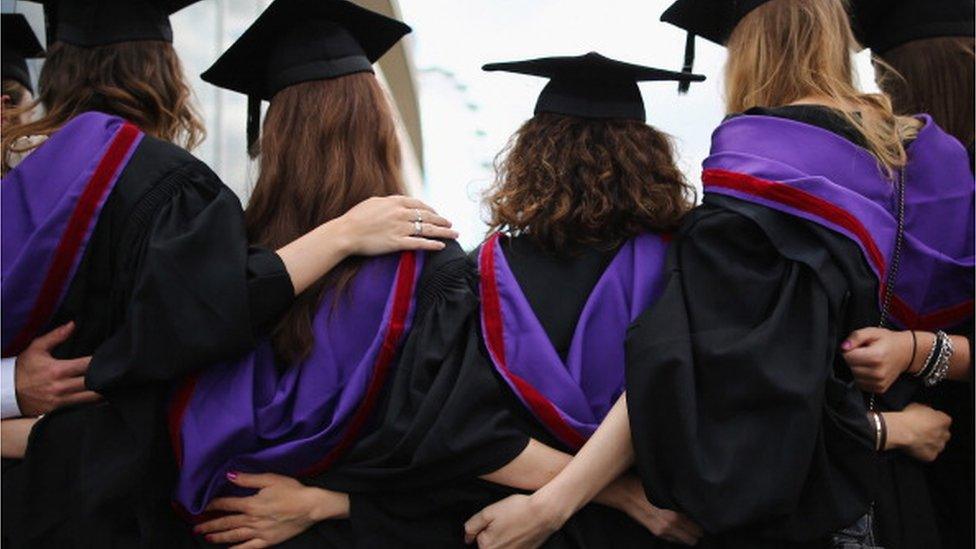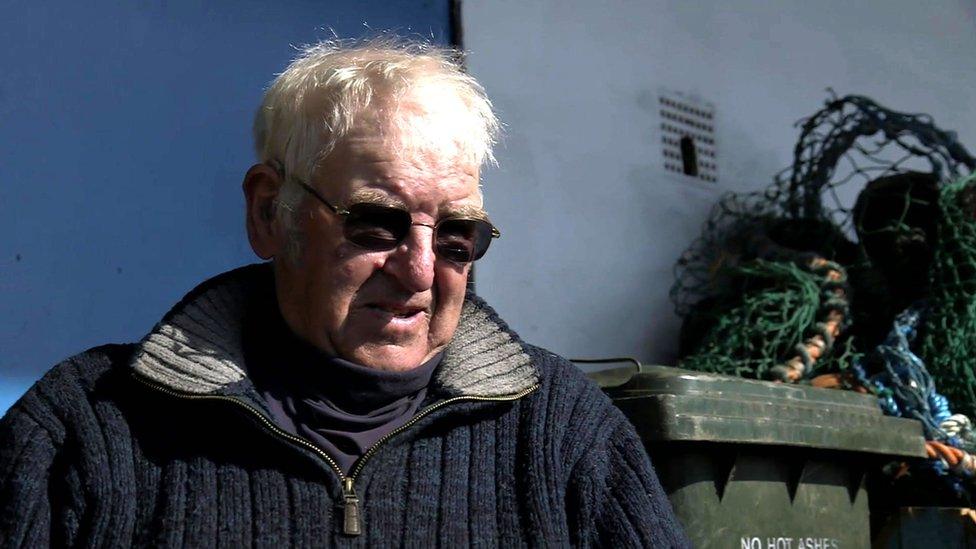General election 2017: Will education be the key factor?
- Published

Class used to be an accurate indicator of voting habits - but that's no longer the case. For the first of a three-part series on new political divisions in Britain, BBC Newsnight's Katie Razzall reports on the education divide.
"Whether you look at the vote for Brexit, the vote for Trump or for Marine Le Pen," says Prof Matthew Goodwin of the Chatham House think tank and Kent University, "education was the biggest predictor of whether somebody would vote against the mainstream centre option."
Prof Goodwin says education is now arguably "the most important divide" in Western elections.
Fifty years ago, only a very small slice of UK society went to university. Now it's the norm.
And whether someone has a degree or not is now a key marker of how somebody might vote. But why?
"We're not entirely sure - but what is clear is education does have a really strong effect on making people more predisposed to liberal political outlooks," says Prof Goodwin.
"Some say the more liberally-minded self-select into education. Others say it's the socialisation experience people have at university. They socialise with other liberals and it further develops."

YouGov polling at the start of the general election campaign, external suggests 53% of people with no qualifications plan to vote Conservative, 17% UKIP, 18% Labour and 5% Liberal Democrat.
The Conservative vote share appears to decrease for every extra qualification a voter has, according to this poll.
When it comes to graduates, the Tory vote share is down to 36%, UKIP 4%, while Labour was supported by 28% of those with degrees and the Lib Dems by 19%.
Conservative popularity right now means they do lead amongst all educational groupings. But among those with a degree, the Tory lead falls to 8%.
UKIP struggles among highly-educated voters, the Lib Dems among those with no qualifications.
Of course, statistics are one thing, people's lives and views quite another.
"It's sad the 48% [of people who voted Remain in the referendum] have been cut out of public discourse," says Dan Burton, a student at Durham University and a Labour supporter.
He was also concerned that Remain voters were being labelled "enemies of the people" in the press.
"Your views can so easily be swayed" - students in Durham speak to Katie Razzall
"Voting Labour and Remain, it's how I feel about society - I want it to be multicultural and equal," adds fellow student Laura Foster.
Of the seven students we interviewed, four were Labour voters, one was Lib Dem, and two were Conservatives. All but one had voted Remain in the referendum.
Close to 20% of people in Durham have a degree. But in parts of Tyneside, like South Shields, almost 30% have no qualifications at all.
"Unless Theresa May can say, 'This is what we've got for fishermen' then my vote goes to UKIP," says James Murray, a fisherman at North Shields fish market.
He left school at 16 and more recently struggled to make a living on the water.

Jackey Weatherstone has been a fisherman for than 50 years
On the day of the EU referendum result, we met many at the fish market who were celebrating it. But it is clear the UKIP vote among the fishermen is now getting squeezed as Mrs May's promise of strong and stable government and a hard Brexit is cutting through.
"I had to be in the Labour Party to get a job and get to sea - otherwise you didn't get a job," says Jackey Weatherstone, who also left school at 16 and is now aged 80.
But now he feels differently, saying: "It's got to be Conservative, because UKIP are finished. They've done their job. We're out at last."
The plans for a hard Brexit will play a "massive role" at this election, argues Prof Goodwin. "If there is a realignment on the British right, it will allow us to identify areas where the UKIP-Conservative alliance will do well."
That may not be here in the north-east of England. But across the country, it will likely have a profound effect on the future direction of Britain.
This is the first of a three-part Divided Kingdom series for BBC Newsnight, looking at the new divides in politics.
Divided Kingdom: Watch Katie Razzall's report for BBC Newsnight